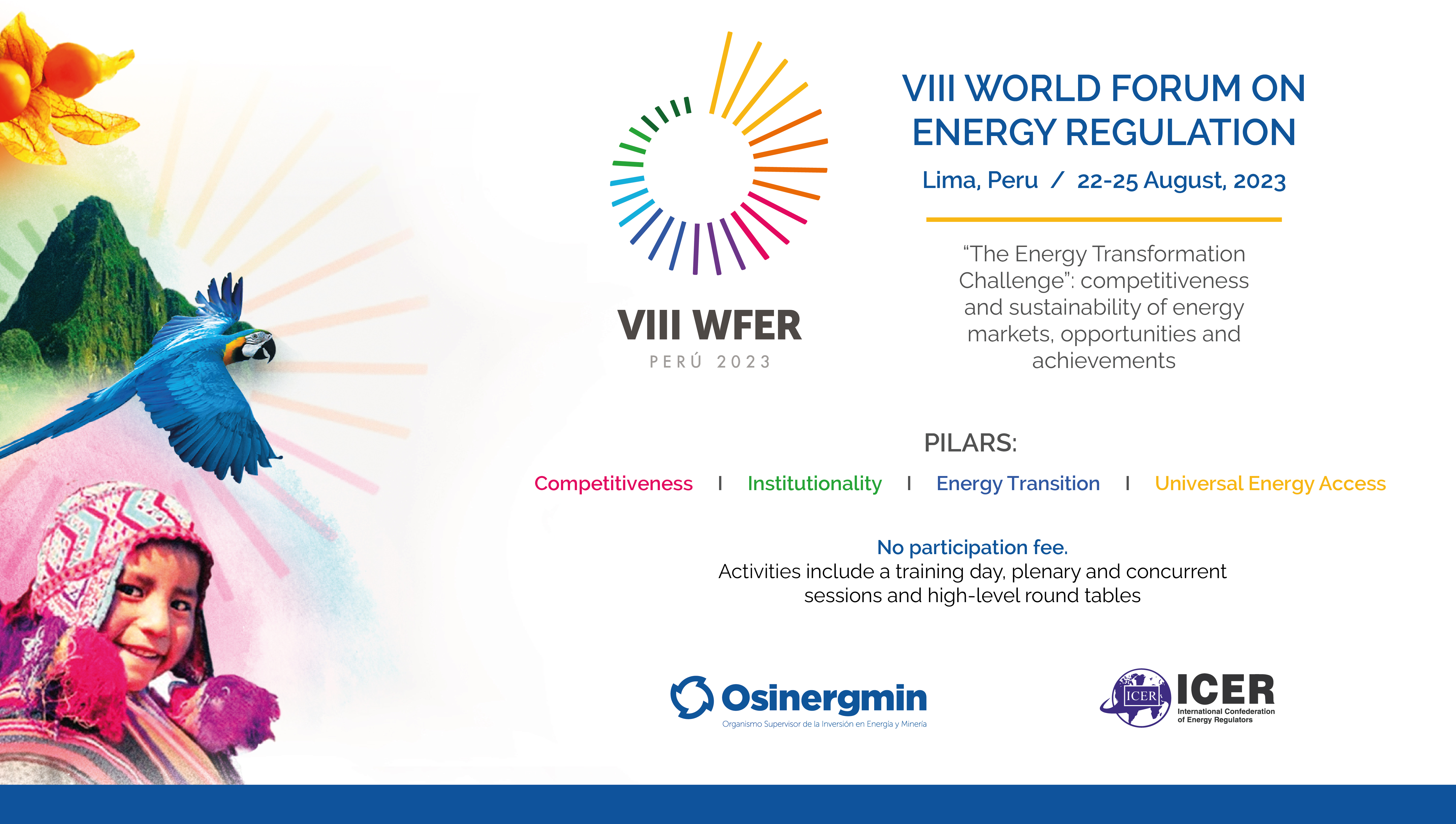WFER VIII
The eighth edition of the World Forum on Energy Regulation (WFER) was held at the International Convention Center of Lima, Peru, from 22-25 August 2023.
WFER VIII was held under the overarching theme “The Energy Transformation Challenge: competitiveness and sustainability of energy markets, opportunities and achievements”.
The main topics for discussion were competitiveness, institutionality, energy transition and universal energy access. High-Level Roundtables, centred around these four pillars provided an opportunity for focused discussions.
Registered participants also had access to a Regulatory Training Day on 22 August 2023 (see below for more on CEER-led trainings).
CEER board members and representatives had a strong presence at the event, participating in high-level roundtables, plenary sessions, concurrent sessions, and regulatory training.
The official languages of WFER VIII were English and Spanish.
For more information, visit the WFER VIII website here.
Highlights of WFER VIII
Day 1- 22 August
Opening training session on “Market integration of renewable energies”
CEER Vice President Pedro Verdelho described challenges and opportunities of electricity systems in transition, given that the levelised cost of energy of fossil fuels exceeds that of renewables but there remain challenges of multi-directional flows, decentralisation, intermittence, variability, etc.
Mr Verdelho discussed regulatory challenges and opportunities in light of more and more renewables in the system: more dynamic regulation, new considerations in consumer protection and security of supply all whilst ensuring sustainability.
Finally, Mr Verdelho defined the “Glocal” concept: that is, a simultaneously global, local and circular approach to electricity/energy markets. This is fundamental to addressing the energy challenges of today, he added.
Training session on “The independence of regulatory authorities”
CEER President Annegret Groebel gave the opening address and stressed that CEER monitors and reports on the independence of European energy regulators and assesses independence in order to join CEER as a member regulator.
Ms Groebel noted that as regulators take on various sectors, more resources are needed to maintain independence in a multi-sector regulator. She examined the legal background for a truly independent set-up for a regulator, including that decisions remain in effect when challenged in court until there is a decision.
During the energy crisis in Europe, she added, many crisis management tasks were assigned to regulators by government, sometimes with a short-term view, that were not appropriate as long-term measures.
Day 2- 23 August
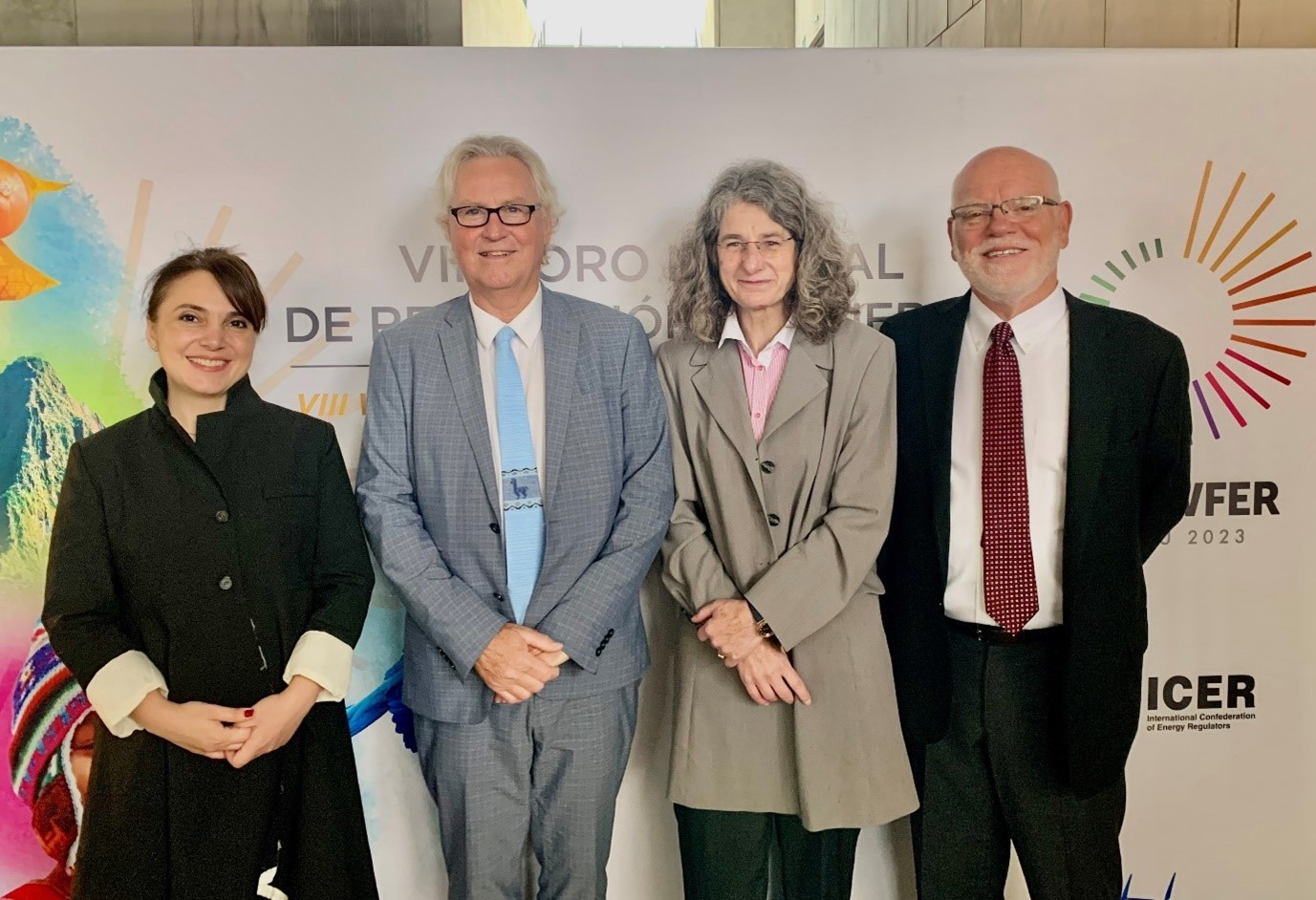
Annegret Groebel re-elected Vice Chair of ICER
CEER President Annegret Groebel (BNetzA) was re-elected yesterday as Vice Chair of the International Confederation of Energy Regulators (ICER), the voluntary framework for cooperation among energy regulators worldwide of which CEER is a member.
Ms Groebel joins new Chair David Morton of the British Columbia Utilities Commission (Canada) and two co-Vice Chairs: Maia Melikidze of the Georgian National Energy and Water Supply Commission (CEER Observer GNERC) and Dave Danner of the Washington State Utilities and Transportation Commission (United States). Download the press release
“Innovation and Disruptive Technologies - The Regulator’s role and the dilemmas we face” session
CEER Distribution Systems Working Group member Paulo Oliveira presented experiences with dynamic regulation in Portugal. Discussions were held on how EU energy regulators develop and experiment with tools that cover new technologies to test new regulatory approaches.
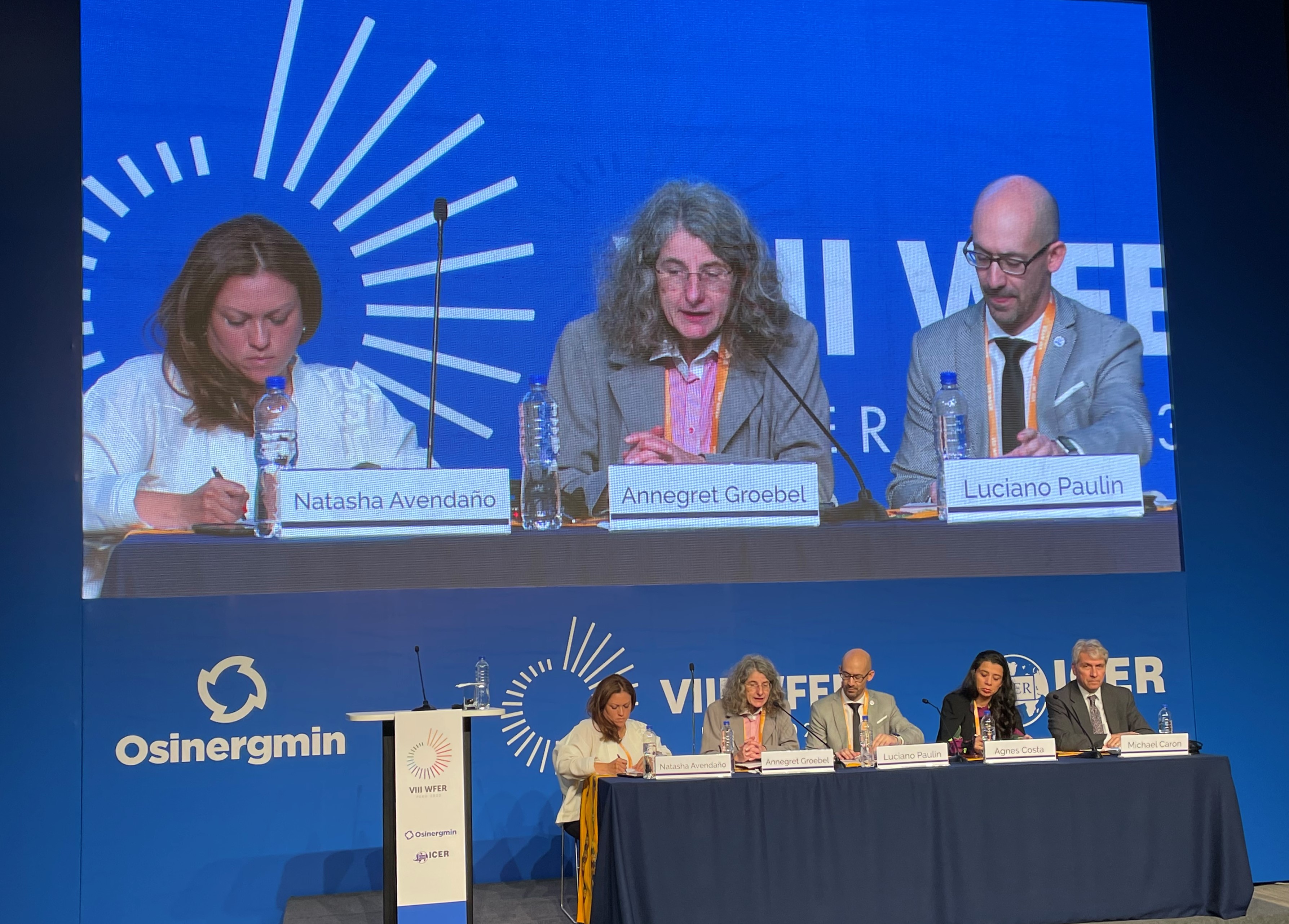
Panel discussion “Being an independent regulator”
CEER President Annegret Groebel emphasised the importance of independence, given the necessity of pushing through sometimes unpopular decisions for effective regulation of the sector. She stated that regulator should resume a normal path after a crisis, but regulation should be more flexible, without losing predictability to keep progressing toward the energy transition. Ms Groebel also noted that there should be checks and balances for regulatory agencies, but this should not impinge on the ability to take independent decisions.
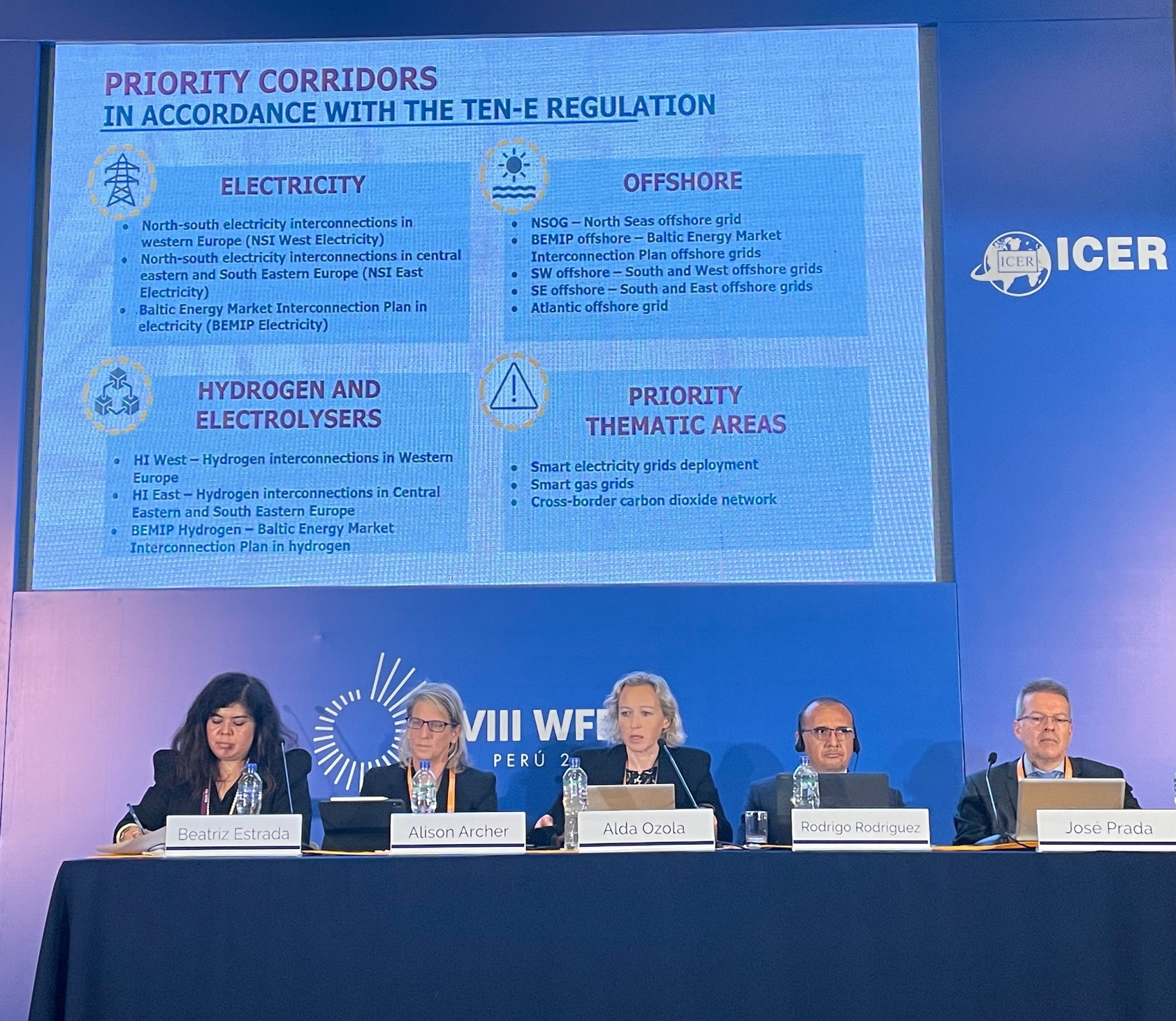
Panel on “Developing the game rules for cross-border integration”
CEER Vice President Alda Ozola provided the Baltic example of cross-border integration, including synchronisation with the Continental Europe grid which is expected in 2025.
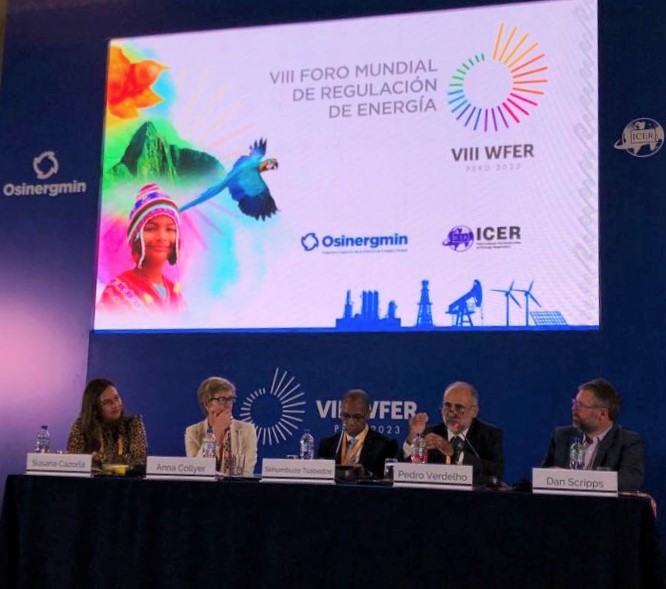
“Secure and sustainable - opposites or mutually reinforcing goals?” session
CEER Vice President Pedro Verdelho insisted that we need a holistic approach to deliver the energy transition, optimising the potential of renewables and without putting the security of energy supply at risk.
A GLOCAL approach: globalization + local economy + circular economy
Day 3- 24 August
“Building the next-generation mix of Energy Resources” panel
CEER President Annegret Groebel showed how CEER’s strategy for 2022-2025 relates to regulators’ efforts to see that mix come to fruition, whilst leaving no energy consumer behind.
CEER Vice President Alda Ozola shared some challenges and approaches in this for Latvia, including net accounting and net settlement systems for micro-capacity PV and incentivising demand response. Vice President Ozola noted that some of these settlement systems led to issues with covering costs in Latvia Capacity guaranty payments was another approach taken instead to keep supply connected to the grid. Reconstruction of lines was found to be expensive without a guarantee that new supply would be built. Curtailment is also sub-optimal. Therefore, Latvia is looking at the introduction of regulation to enable developers to combine resources and technologies. Finally, incentivising demand response will be an important feature of the next-generation system.
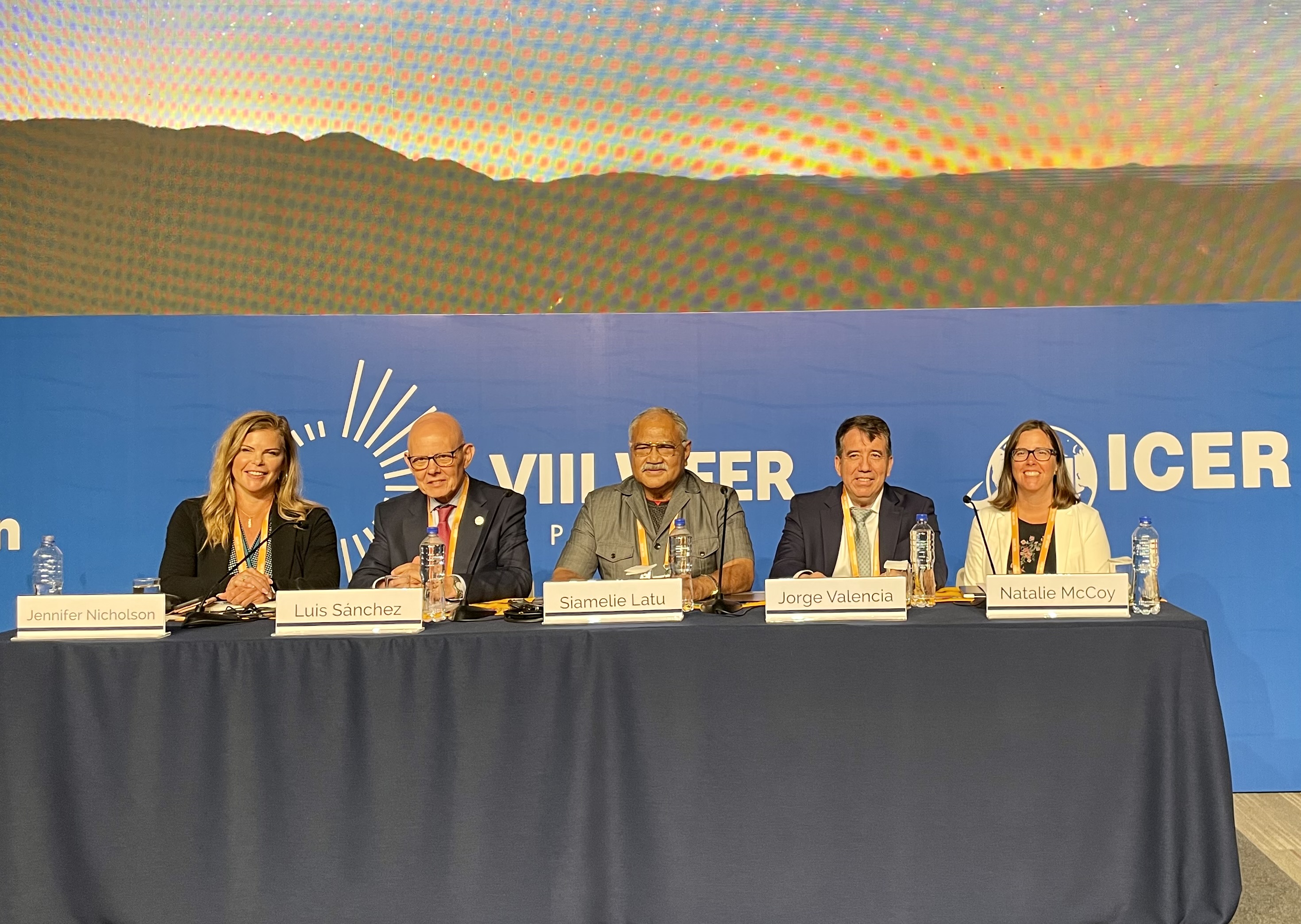
"Towards Universal Energy Access – empowering and educating the consumer" panel
Natalie McCoy, CEER Co-Chair of the Customers and Retail Market Working Group, commented that rather than lack of access to energy, energy poverty and vulnerability have become the growing problems in Europe due to the crisis.
Panel discussion on “Decarbonisation in Energy Regulators’ Decision Making"
Jane Dennett-Thorpe, of CEER Member Ofgem, described the role of the regulator in the energy transition, including changes and challenges.
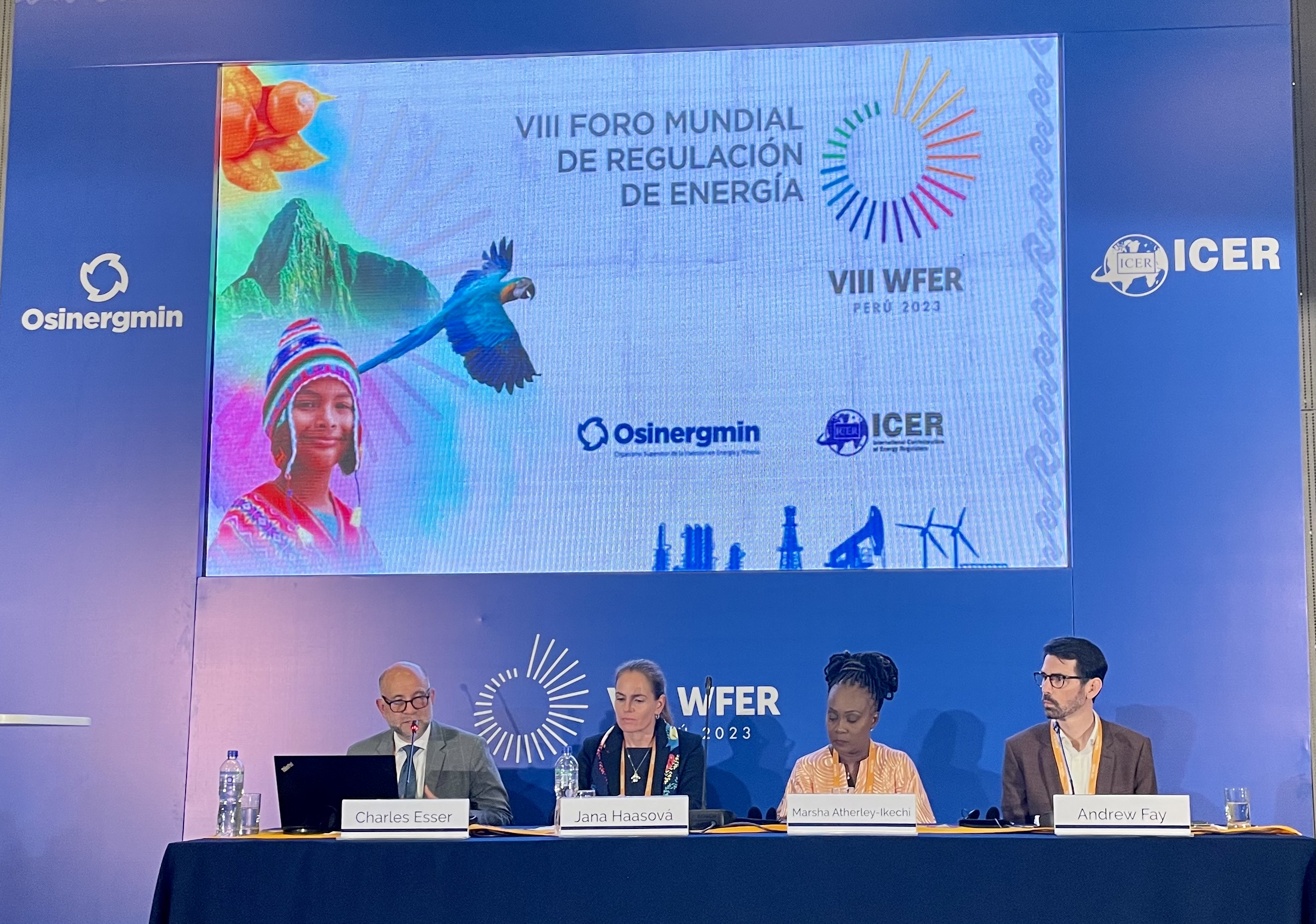 Panel on “The race to e-mobility: a new era?”
Panel on “The race to e-mobility: a new era?”
CEER Secretary General Charles Esser moderated the panel, joined by Vice President Jana Haasová and speakers from Barbados and Florida who shared their experiences and current developments in e-mobility.
Vice President Haasová gave an overview of CEER's new report on the development of e-mobility and the main issues EU regulators are facing.
Day 4- 25 August
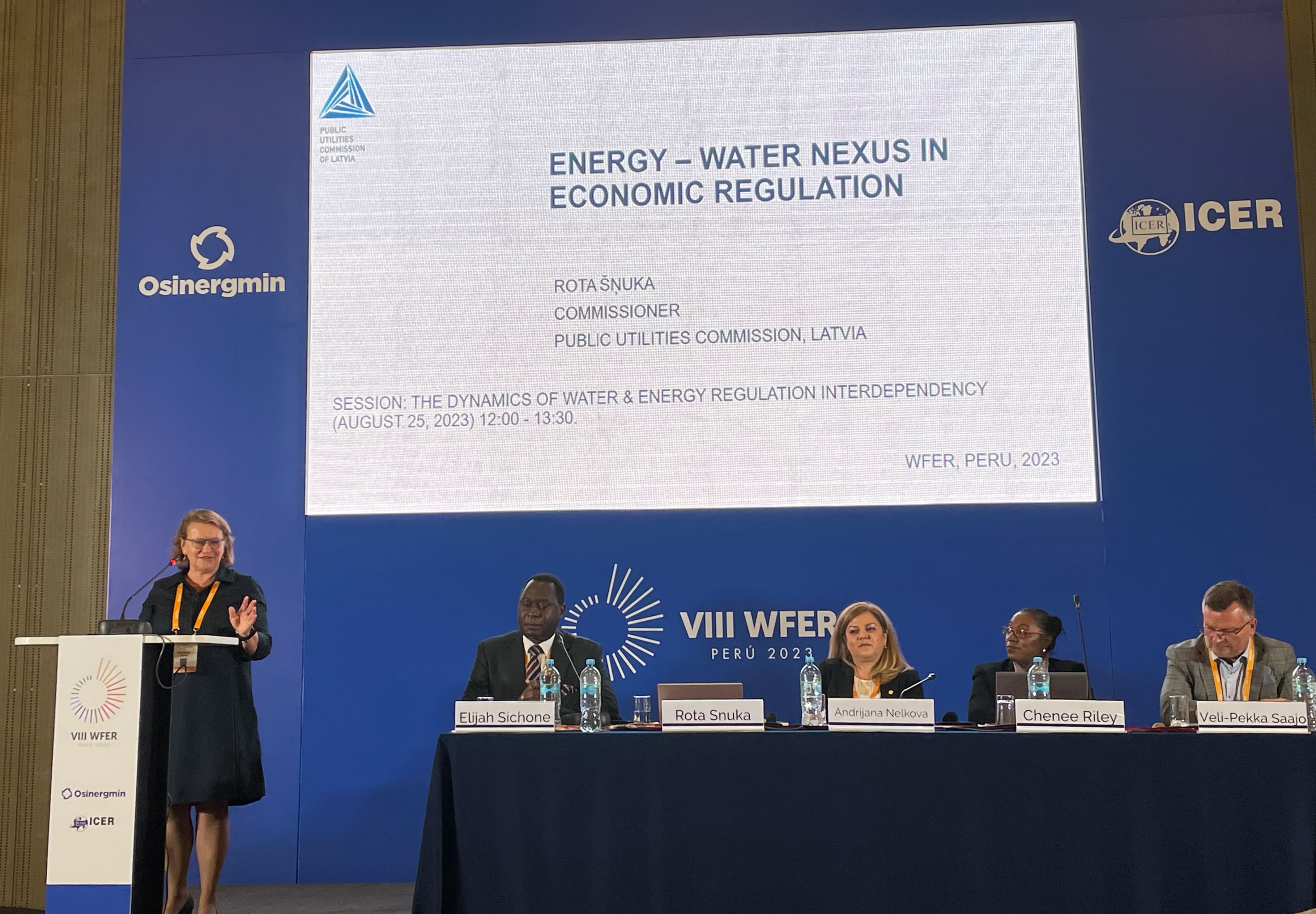 "The dynamics of water & energy regulation interdependency” panel
"The dynamics of water & energy regulation interdependency” panel
CEER Distributions Systems WG Chair Veli-Pekka Saajo reviewed issues with multi-sectoral regulators in Europe, including relevant court cases affecting such regulators. The most difficult challenge in intersectoral regulation is related to issues of subsidised markets, particularly where a network operator moves resources from the regulated business to a competitive market business. Mr. Saajo noted that there is a strong need to have water properly regulated in those countries without such a regulator, especially because the water issues touch on electricity regulation. He noted that connection fees for water are much higher than that of electricity in Finland, and there is a need to have a regulator examine why that is.
Ms Andrijana Nelkova-Chuchuk of CEER Observer ERC discussed why and how water regulation was introduced in North Macedonia.
CEER General Assembly member and PUC (Latvia) Commissioner Rota Šņuka looked at electricity consumption/costs for water supply, showing the relation between the two.
Ms. Šņuka discussed how getting the right price for water is important for obtaining an efficient investment level. Population projections are very important as well for water investment planning. She gave the important example of solar heating of the water supply with new more efficient investments that have lowered tariffs for consumers.

